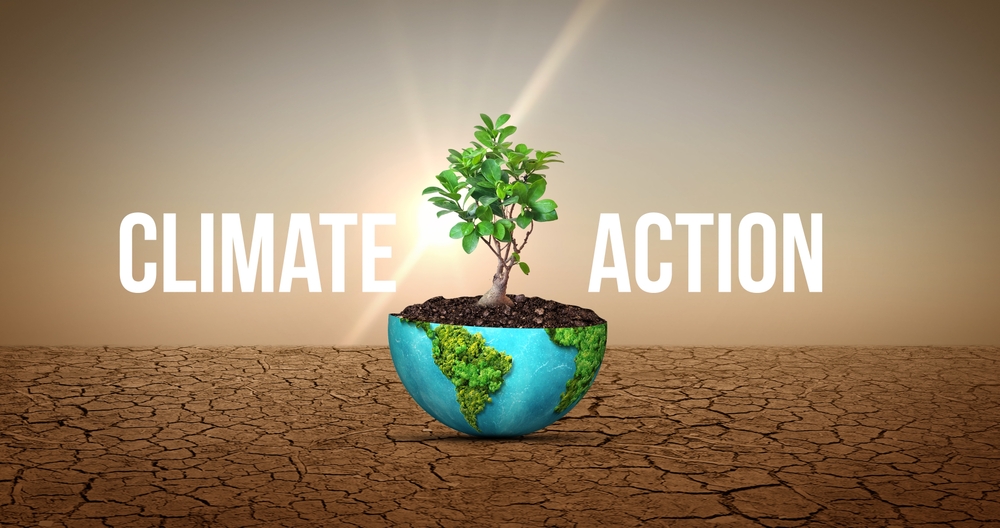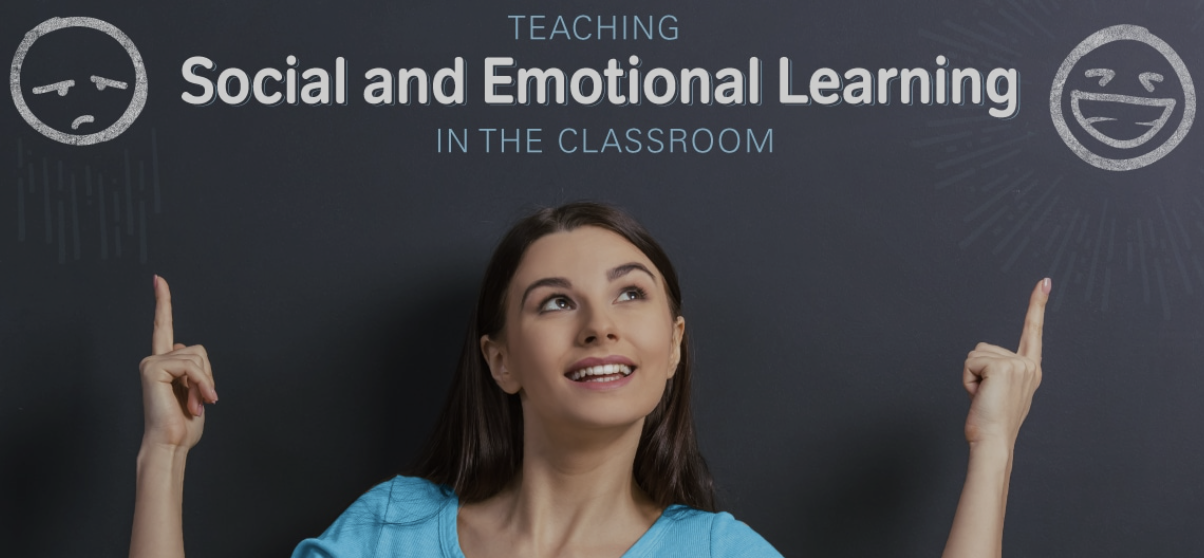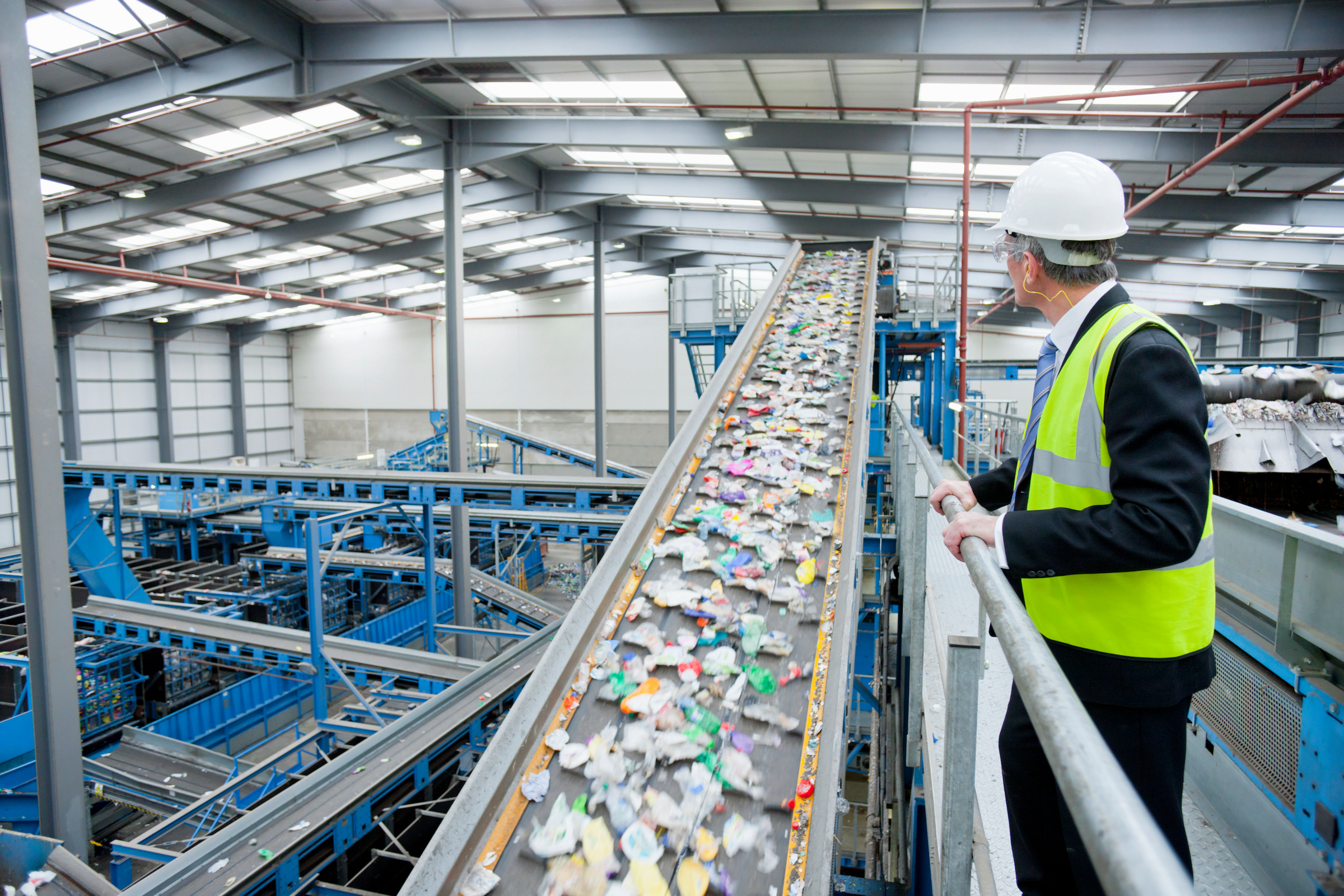What Possible Difference Could It Make?, Vol.7 Eliminating Plastic Waste
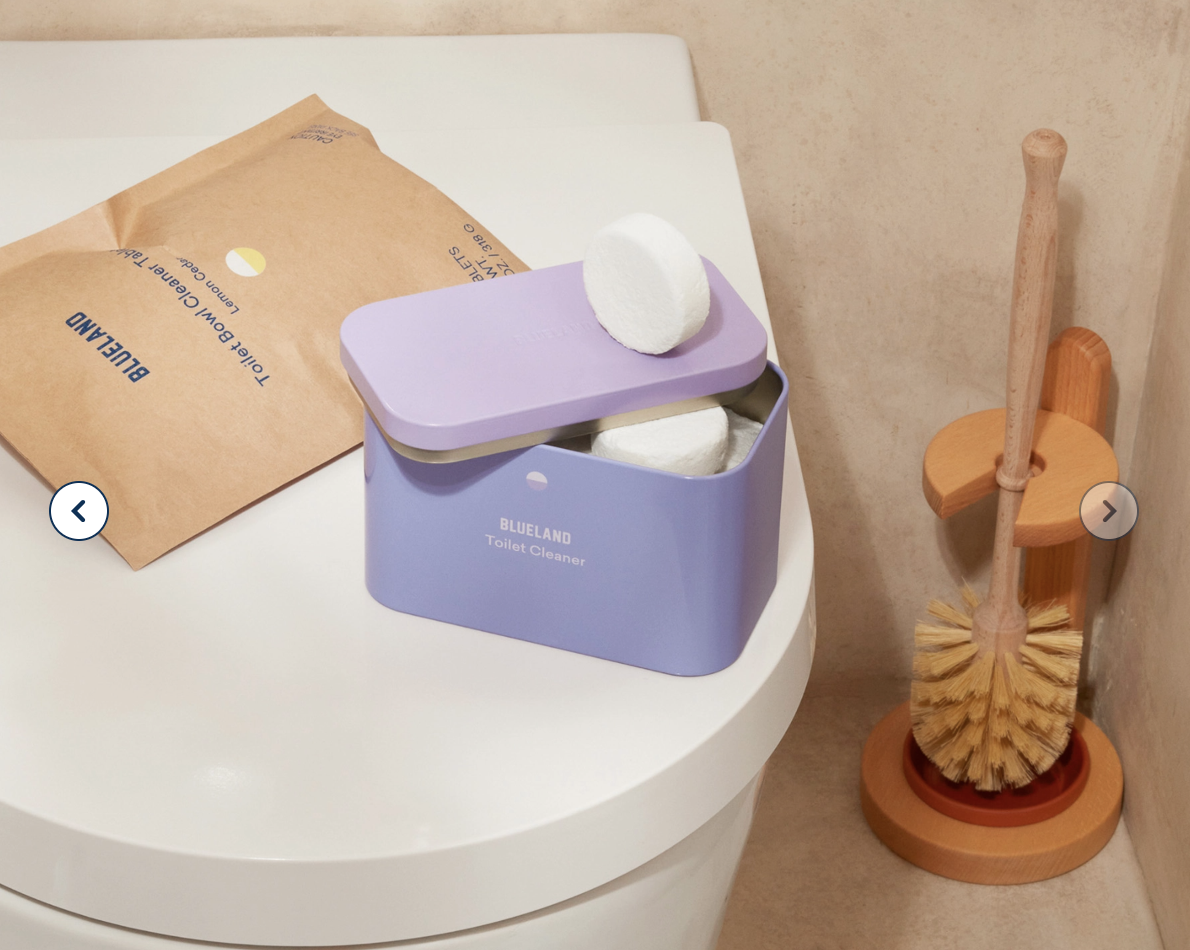
In What Possible Difference Could It Make, Vol. 5, I extolled the virtues of recycling and exhorted us all to recycle our way out of our giant waste problem. But the truth is: recycling isn’t making a dent, at least not when it comes to plastics.
In a recent op-ed in the Washington Post, Michael Coren noted,
“Just 9 percent of the world’s plastic waste was recycled in 2019, according to the Organization for Economic Cooperation and Development. In the United States, only about 4 percent of plastic ever lands in a recycling bin, a number that is declining as more is landfilled, burned or tossed as litter.”
Like a lot of products that were introduced to the market in World War II, plastics were promoted as modern and convenient. Plastics are durable, light, cheap, and endlessly versatile. So much so, that for decades, it seemed to make perfect sense to ship a single serving of water, that is otherwise free, or a heavy jug of detergent, that is mostly water, across the country, or to the other side of the world.
But is there any sense in it, now? Today, global plastics production, the bulk of it serving the consumer economy, exceeds 450 million metric tons, roughly 122 pounds for every person on the planet every year. With so little being recycled, we’re literally awash in plastics.
“Humans have filled the world’s oceans with more than 170 trillion pieces of plastic, dramatically more than previously estimated, according to a major study released in March 2023…That is more than 21,000 pieces of plastic for each of the Earth’s 8 billion residents.”
There is so much plastic waste in the world that “we are all ingesting roughly a credit card worth (5 grams) of microplastics each week.” Just to be clear, microplastics are not what we want in our bodies; they act as endocrine-disrupting chemicals in both humans and wildlife, disrupting the hormone system which directs some of the body’s most important functions.
Could we be reaching the choking point? Might yesterday’s sense of convenience seem so “last year”? I recently bought a couple packets of TruEarth and Earth Breeze laundry detergent sheets. I’ve been really happy with both brands, not least because one little packet the size of a small note pad cleans as many loads as a 5 lb. jug of liquid detergent, and just as well.
There are other brands of laundry sheets on the market today. The Laundry Guru, an “eco-conscious consumer,” who with her mom, has “spent the last several years researching and testing the best eco-friendly products on the market,” tested the top laundry sheet brands for effectiveness, scent, cost, and ingredients. The sheets I bought did quite well, but it was a brand called “Hey Sunday” that was their winner, and for a long list of really good reasons (see image).
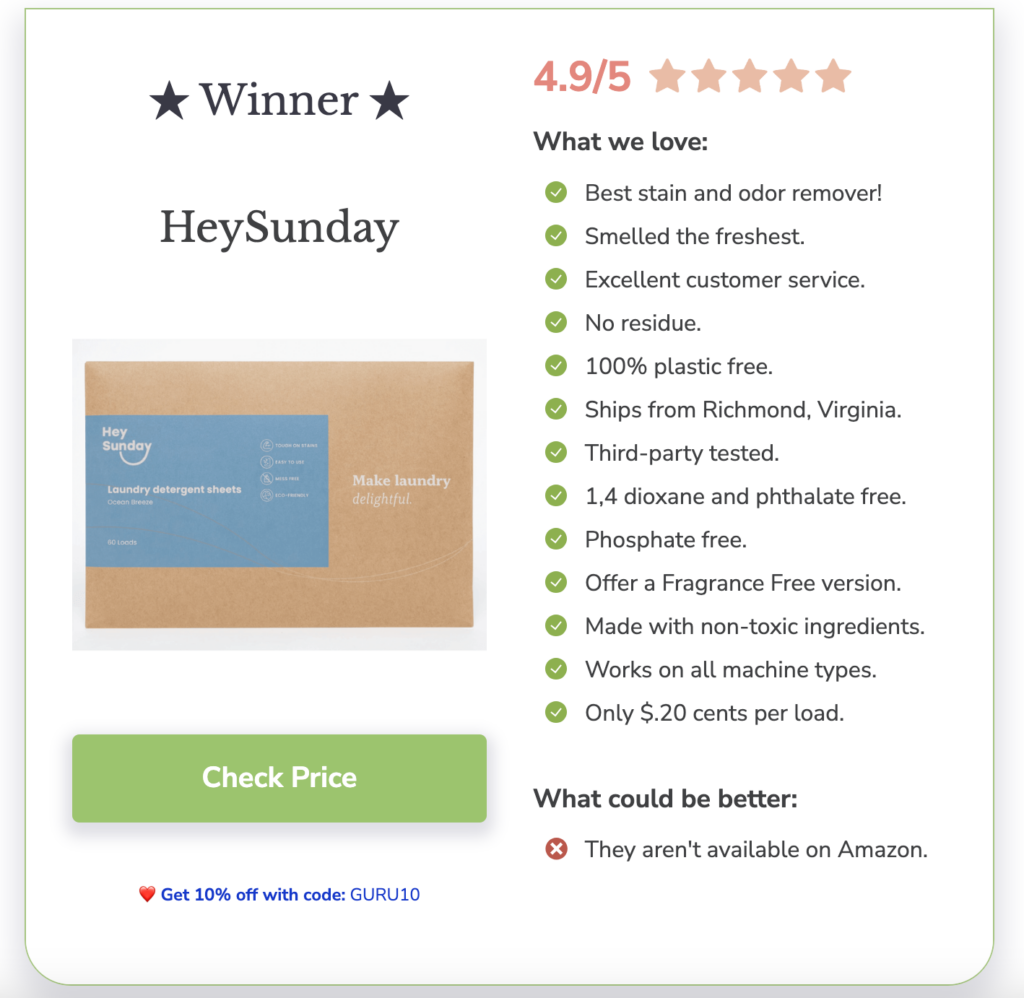
I’ve also just bought several products from Blueland, including toilet bowl cleaner tablets. “Just drop, brush, and flush.” are the instructions. The starter kit comes with a reusable tin for storing the tablets, and for convenience, I chose the subscription option – a recyclable refill packet of 42 which arrives according to a schedule that I set. I never have to buy a single use plastic bottle of toilet bowl cleaner again.
My next step is to research personal care products. Shampoo bars, toothpaste tablets anyone? The toothpaste tablets sound a bit weird, but I’m game to try. I’m also going to join in advocating for “extender producer responsibility” (EPR) programs, which require manufacturers or other responsible parties to collect, recycle and manage their packaging, similar to programs that now cover paint, carpets, batteries and mattresses. Colorado, Maine, Oregon and California have all passed EPR programs and more than a dozen other states are considering following suit. One of the most ambitious, in Washington state, requires 90 percent of packaging materials to be reused or recycled by 2040.
I recently learned the American Chemical Council (the main lobbying arm of the plastics industry) is fighting EPR programs. They are advocating instead for “chemical recycling,” which means burning fossil fuels to turn plastics back into oil and gas which could be made into new plastics or yes, you got it, burned.
This is nothing more than a “pseudo solution to the plastics pollution crisis,” explains Melissa Valliant, communications director at Beyond Plastics, an organization that works to fight plastic pollution….The newest “smokescreen” so that consumers could be reassured, falsely, deceptively, that this problem was being curbed.”
Not this consumer, not anymore. “Fool me once” as the saying goes, “shame on you. Fool me twice, shame on me.” Sure, I’ll continue to recycle as necessary, but with a modest amount of effort, and cost, convenience, and a healthy environment now front of mind, I am single-handedly putting a sizable dent in the plastics coming into my home.
Join the growing number of people saying “no” to plastics; go to Beyond Plastics to learn more.
By Wendy Gordon, President, PIPs Education Fund
